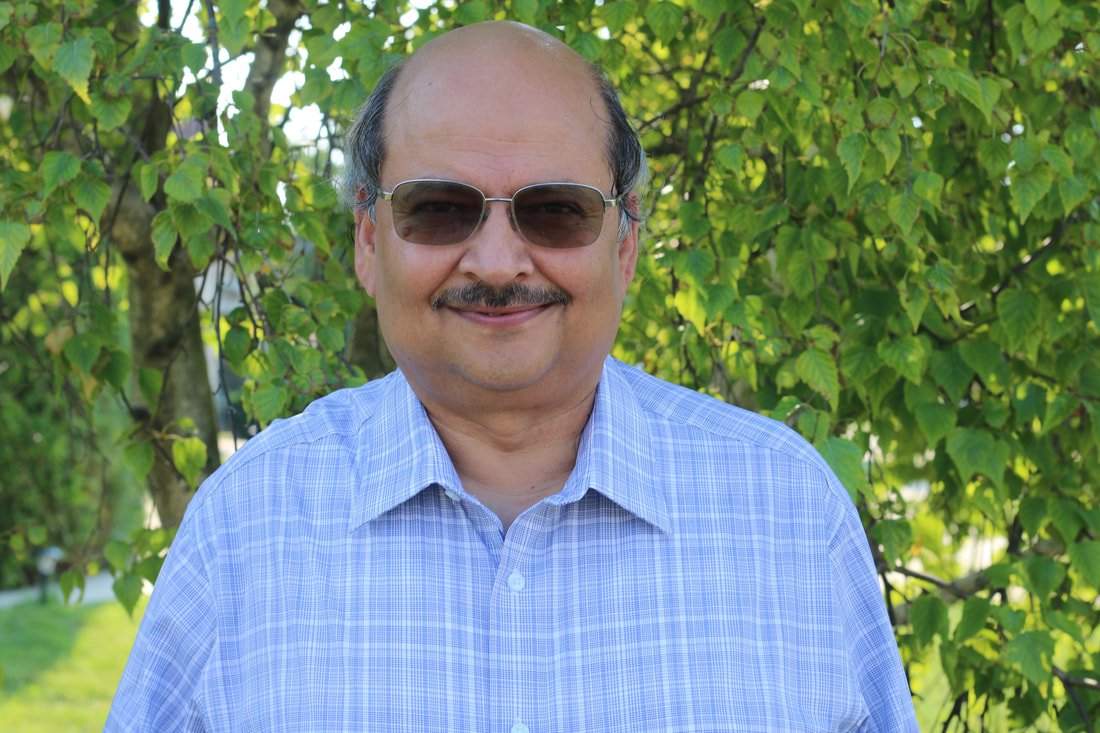Ecosystems are both a response to and regulators of prevailing climate and associated precipitation patterns in a region. They are also important mediators of soil and microbial structure and composition, as they partition both incident precipitation and radiant energy, thereby creating the moisture and thermal regime above and below the ground. Ecohydrology aims to provide a comprehensive understanding of the complex dependencies between the water cycle and vegetation processes, together with the associated linkages to soil composition, geochemical environment, and supporting microbial functions.
What are your undergraduate and graduate degrees in?
I got my B.Tech degree from the Indian Institute of Technology, Bombay, India (1987), M.S. from Iowa State University, Ames, Iowa, (1989) and Ph.D. from the University of Minnesota, Minneapolis, Minnesota (1993), all in Civil Engineering.
How did you arrive at working in/thinking about ecohydrology?
Both my M.S. and Ph.D. thesis were in the exploration of the nature of spatio-temporal variability in rainfall. During my Postdoc at NASA-Goddard Space Flight Center, I had the opportunity to begin the exploration of the impact of climate change on terrestrial systems. Subsequently, after arriving at the University of Illinois in 1995, I continued this research theme. It became increasingly more evident that the linkage between vegetation and water cycle was crucial not just from the perspective of water and energy partitioning that impact climate dynamics, but also understanding the impact of climate change on terrestrial systems. Subsequent research led to important realization that while increased CO2 impacts vegetation processes through precipitation and temperature, it also directly affects the ecophysiological response of vegetation which further impacts moisture and energy dynamics. Research in critical zone science over the past decade has unraveled further dependencies with soil processes. So thinking and working in ecohydrology has been an evolution in the understanding and appreciation of complexity of dependencies.
What do you see as an important emerging area of ecohydrology?
My group has been working on several fronts in this field. First, we have been exploring the role of hydraulic redistribution, a process by which plant roots move the water from wet to dry soil regions in both upward and downward directions, in regulating several processes such as evapotranspiration, nutrient dynamics in the soil, interaction between multiple vegetation species that co-exists in the same environment (such as overstory and understory vegetation), and influence of root access to ground water resources. Second, we have developed models to characterize the acclimation response of vegetation to increasing CO2 concentration in the atmosphere. This acclimation response, manifested as structural, biochemical, and ecophysiological changes subsequently impact the water and energy partitioning and also their productivity and resilience to climate variability and change. Third, through modeling we are learning that vegetation plays an active role in regulating their soil environment through exudation of chemicals through the roots. These chemicals bring about changes to the microbial population and associated functions, and they also impact the below-ground biogeochemistry including weathering and subsequently stream chemistry. Finally, we are exploring the role of thermodynamics in shaping ecosystem structure and function, and their related role in hydroclimatological dynamics. Through these studies it has become clear that the linkages between the water cycle and ecosystem processes are intertwined across many time scales. I believe that unravelling these dependencies across time scales and coupled spatial scales, particularly in light of climate and anthropogenic drivers, is an important challenge.
Do you have a favorite ecohydrology paper? Describe/explain.
As I explained earlier, my interest in the field has evolved from more narrow view of coupling between water and ecosystem to subsequently include climate impacts of change in variability in precipitation and temperature, leading further to acclimation response of elevated CO2, and then to critical zone perspective leading to dependencies across multiple time scales and processes. At the early stage of the research over two-three decades ago, the pioneering works of Peter Eagleson and Ignacio Rodriguez-Iturbe provided foundational principles. However, the field has become far more intricate and I encourage students to develop their own literature-based synthesis that more closely follows the specific problems they are pursuing.
What do you do for fun (apart from ecohydrology)?
Anything science! I have a broad interest in science, and I like to read broadly. I am intrigued by concepts, ideas, and principles that pervade across multiple scientific fields. I also love photography. Much to the chagrin of my family, I am always slowing everyone down by stopping to take pictures on our trips. I also enjoy travel and the present job has offered plenty of opportunity to see places across the globe.

 RSS Feed
RSS Feed